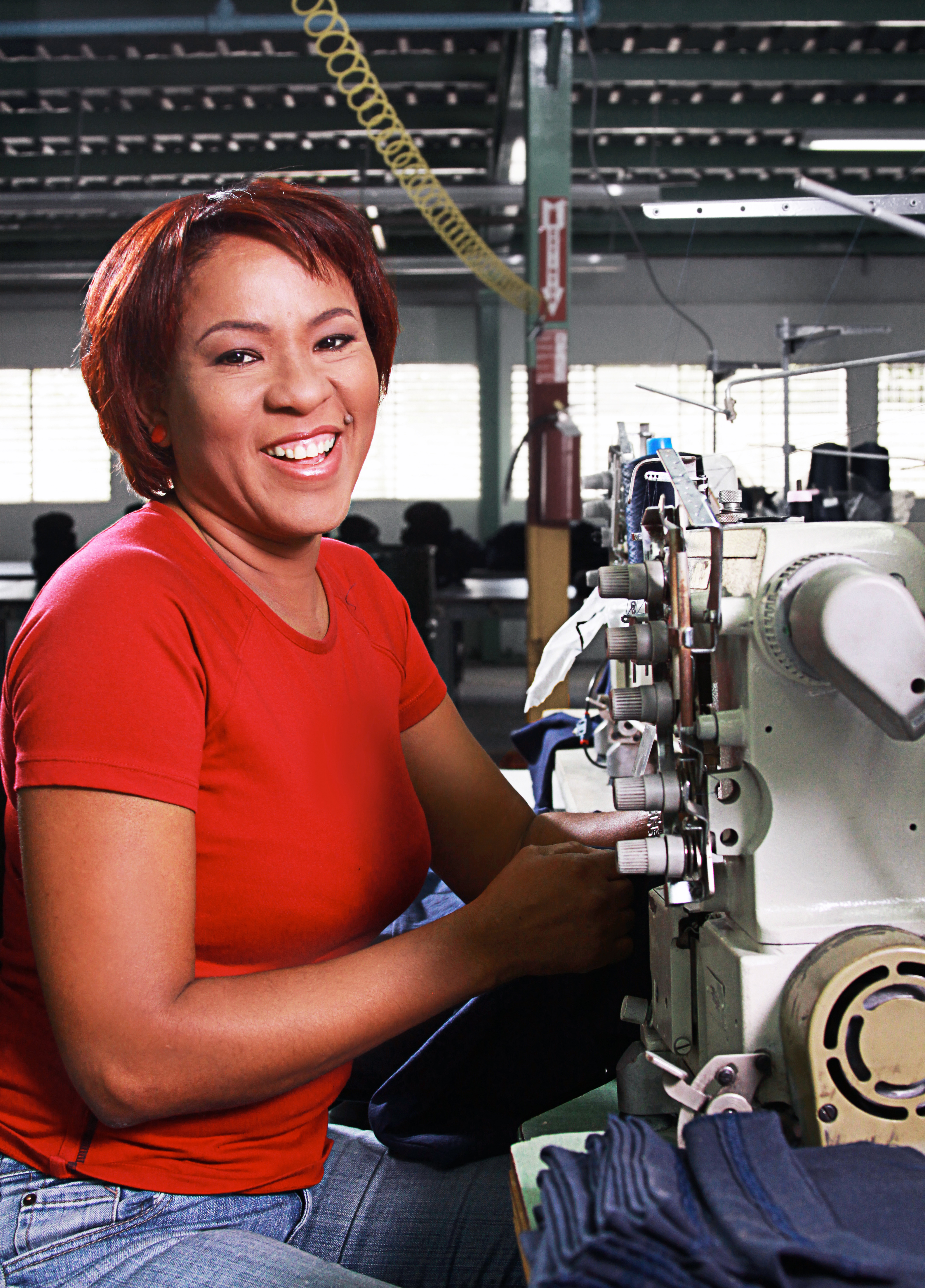Maritza Vargas could only watch as her supervisor kicked her pregnant co-worker off a chair, killing the woman’s unborn baby.
At the factory in the Dominican Republic’s small town of Villa Altagracia, Vargas and her fellow workers manufactured logo baseball caps to be sold at American universities. The workers endured dingy conditions, physical assault and bouts of verbal abuse, Vargas said.
Then, last spring, Vargas and scores of her coworkers switched jobs. They became employees of the Alta Gracia brand, a company launched in April by Knights Apparel. Alta Gracia apparel debuted in dozens of university bookstores this fall, including the UCLA Store.
Knights Apparel, the nation’s leading college clothing supplier, refurbished the factory Vargas formerly worked in and hired 120 locals, giving them access to higher wages, more comfortable work spaces and the right to unionize as employees of the new Alta Gracia brand, according to a company spokesman.
Also according to a company spokesman, Knight takes less profit so Alta Gracia items can be sold at competitive prices despite the company’s high wages.
Alta Gracia T-shirts and sweatshirts were introduced to the UCLA Store last week, said Patrick Healey, Associated Students UCLA director of general merchandise.
Sewing college T-shirts and hoodies for Alta Gracia, Vargas now makes $2.83 per hour, compared to her nation’s minimum wage of 80 cents per hour. Her community is benefitting from the sudden income boost of villagers employed by Alta Gracia. Children in the town now wear new uniforms to schools, where computers await them for the first time.
Vargas, along with former Nike supplier worker Gina Cano, visited UCLA on Monday as a stop on their three-week nationwide tour sponsored by United Students Against Sweatshops. In front of about 35 students, Vargas spoke through a translator about the low salary and inability to unionize she faced before Alta Gracia’s conception.
The tour serves to alert the student population of the sweatshop conditions in which much of their clothing is produced, said Nancy Cruz, a member of the UCLA Student Worker Front who helped organize the event.
“(The tour) pushes the idea that we have lots of power as consumers to make or break a brand,” said Cruz, a third-year sociology and Chicano/Chicana studies student.
Healey said initial sales of Alta Gracia apparel in the UCLA clothing store have been high, but lasting consumer interest will determine if the bookstore orders more of the brand’s wares.
He added that when deciding which company to purchase apparel from, ASUCLA was attracted to Alta Gracia’s commitment to workers’ rights.
“It is our goal to be at the forefront of social responsibility,” Healey said. “Alta Gracia fits well with our core values as an association.”
To ensure that the project’s mission of employee respect is executed, a representative from the Workers Rights Consortium visits the Alta Gracia factory each week, said Knights Apparel CEO Joe Bozich in a recording from an Aug. 31 press conference.
Knights will not expand the factory or add another until they gauge sales success and student interest in the brand, according to a company spokesman.
For now, Bruins can don select sweatshirts knowing they were produced in a unique environment from informational tags on each item.
“Alta Gracia is not just another college apparel brand,” Bozich said. “We can truly be a pathway out of poverty … not just for the people making the clothes, but for their families as well.”
With reports from Kate Parkinson-Morgan, Bruin contributor.
